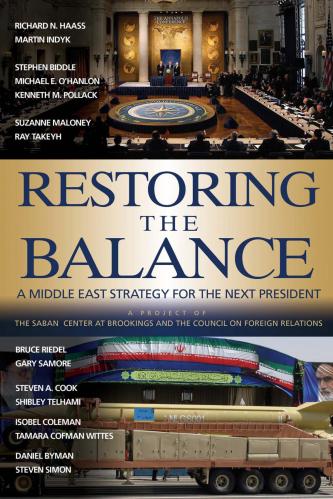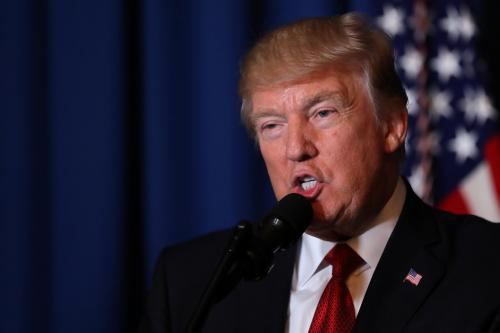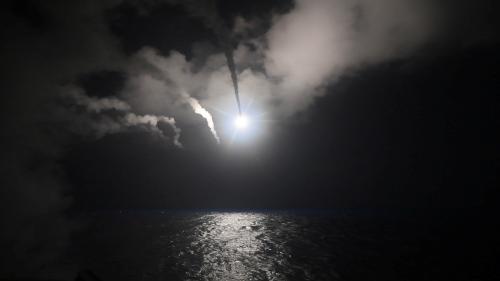After President Obama’s eight years of dithering about the use of force in Syria, the Trump administration has delivered dozens of cruise missiles there without any prior threat to do so. The targets are associated with the use of chemical weapons by Syria’s President Bashar Assad, and represent a dramatic turnaround of U.S. policy. What does this mean for global norms and U.S. policy? Here are some of the pros and cons of this surprising action.
PROS:
The United States has demonstrated clear support for an international norm against the use of chemical weapons, and signaled a cost for future use of such weapons. The Syrians have used such weapons many times without any international repercussions. The strike is a message to Assad and the world that indiscriminate weapons that inevitably kill children and other civilians are not acceptable. It helps undo some of the harm caused by President Obama’s last-minute decision to revert to Congress before taking punitive action after Assad clearly crossed the “red line” of using such weapons. Importantly, the president stated that upholding this global norm is of “vital national security,” contradicting prior positions posing national interests against international standards.
The United States has demonstrated a willingness to use its powerful military might swiftly, forcing the Russians, the Chinese, and other countries to consider the possibility of unpredictable and lethal reactions by the United States. The unilateral use of force shows what the United States might undertake in other situations where vital interests are at stake. The strikes show an inclination to use force in a calibrated way to send a specific signal, surprisingly disciplined for such an undisciplined president and White House. This measure could prove helpful for North Korea.
The strikes may not change the strategic situation in Syria, but they may dissuade future decisions by the Syrians and their Russian and Iranian backers to use weapons and perhaps other indiscriminate weapons like barrel bombs or cluster bombs. At a tactical level, the Assad regime would only be inviting a more serious strike if it uses chemical weapons again. Furthermore, it might reconsider the use of other weapons that violate prohibitions on inhumane treatment or indiscriminate attacks.
CONS:
These minimal strikes are unlikely to dissuade the Assad regime from much more than using chemical weapons again, much less weaken Assad in any strategic sense or bring the war closer to an end. The missile strikes reportedly only took out fuel pumps and structures, deliberately not rendering the runways unusable. The Trump administration signaled to the Russians that some action would occur via “deconfliction” communications. The Trump administration has not shown itself ready to cross the Russians or to inflict any meaningful damage to Assad’s military assets. Even less has it demonstrated a new inclination to develop a broader strategy to bring out a stable, peaceful Syria in the future.
Yikes, we have a president whose policy can turn on a dime and take military action based on one televised incident! President Trump had long indicated a shift away from support for the moderate opposition in Syria. The day before the reported use of chemical weapons, the Trump administration publicly abandoned Obama’s policy that rejected Assad’s remaining in office. Yet two days later, the president ordered 59 missiles into a country without any declaration of war based on his emotional response to televised images of suffering. The whimsy of this behavior should alarm allies and the American people alike, not because of its empathy, but because it took such images for Trump to “get” the suffering of Syria’s horrific war, with its well publicized 400,000 war dead and its 11 million displaced. The next televised atrocity may provoke an even more drastic or disproportionate response without notice or cooperation.
The airstrikes reflects a disregard for multilateral organizations and approaches, and their international legal basis remains unclear. This unilateral strike does not reinforce allies’ expectations or investment in collective security arrangements or burden-sharing. Allies will be less likely to cooperate against enemies and more likely to go their own way. This approach may weaken multilateral platforms that have worked to spread the costs and risks of military action. Furthermore, while the U.S. strikes could be justified based on earlier U.N. resolutions and the need to protect American troops in Syria from chemical weapons, their basis in U.S. law or a U.N. Security Council resolution is contested.
How do these pros and cons add up? It is hard to say in these early hours after the strikes. If the use of chemical weapons is deterred and improved communication with allies and enemies ensues, then a notoriously non-rational administration will have fostered a rational outcome. If, however, these strikes are not followed by a strategic policy and actions, then their negative effects may reinforce early impressions of an incompetent new administration.
The Brookings Institution is committed to quality, independence, and impact.
We are supported by a diverse array of funders. In line with our values and policies, each Brookings publication represents the sole views of its author(s).











Commentary
The pros and cons of the U.S. strikes against Syria
April 7, 2017